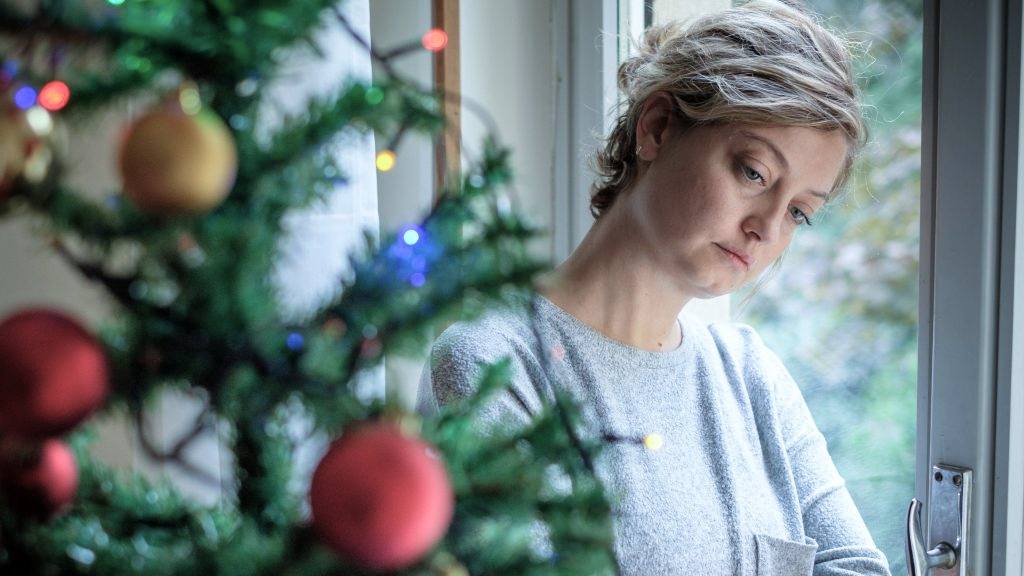
DEAR MAYO CLINIC: A few years ago, both of my parents passed away in December, so the holiday season is always a bit hard for me. This year, I was excited about an extended visit from my sister and her family, but due to COVID-19, they will not be traveling. Do you have any advice on managing the holidays alone?
ANSWER: The holiday season can be a challenging time for some people, especially if they have had a loss during that time of year. Now the ongoing COVID-19 pandemic is exacerbating feelings of isolation and loneliness as so many more people will spend the holidays alone.
Between the longer days and colder temperatures, winter can be hard enough. But for people such as yourself, anxiety and depression can become more problematic this time of year. COVID-19 is only adding to the mental fatigue of the season, as people have had to spend so much time social distancing and isolating.
Here are five things you can do to mitigate some of the challenges of being alone this winter:
1. Schedule virtual interactions.
Earlier in the pandemic, many people used technology to virtually connect with loved ones. For some, the frequency of this type of interaction slowed during summer.
Take time to schedule regular virtual visits throughout the winter so you can connect. Although seeing your sister's family via Zoom or over FaceTime is not the same as having them under your roof, a regular check-in schedule gives you something to look forward to. Also, if you have friends who can offer emotional and mental support, go ahead and schedule time with them, too. You might not be able to meet for coffee weekly at the corner café, but you can put a virtual date on the calendar.
Everyone needs a varying amount of social contact, so find a routine that works best for you.
2. Evaluate how much and what type of news you consume.
It's important to be informed about the world around you, but 24/7 access to news can be overwhelming. Ongoing negative news coverage can significantly affect your mood, especially if you consume news that tends to highlight suffering and emphasize feelings of fear or sadness.
This winter, track the amount of time you spend watching TV, listening to the radio or reading online news coverage. Set a goal to consume only reliable news sources that report facts, and avoid media that sensationalizes emotions. Limit your exposure or take a break from news and social media if you find that it makes you anxious. Likewise, given that you may feel a bit more sad or depressed at this time of year, limit your intake of holiday movies or shows that might elicit difficult emotions.
3. Learn a new relaxation exercise.
Relaxation techniques are a great way to manage stress. Practicing relaxation techniques can have many benefits, including slowing heart rate, lowering blood pressure and fatigue, improving concentration and mood, and reducing activity of stress hormones.
Types of relaxation exercises include deep breathing, meditation and progressive muscle relaxation. Talk with your health care provider for recommendations. Or check out a book at your local library or find an online resource, such as mindfulness meditation audio files, to guide you. Also, meditation apps can lead guided meditations, which can be helpful.
4. Plan ways to give back.
While COVID-19 has canceled events and limited in-person encounters, look for ways to help your community. This could be something simple, such as donating to a children's toy drive or food bank, or virtually connecting with another older person in your neighborhood who might be alone during the holidays.
Helping a cause larger than yourself can give you a sense of purpose and fulfillment, and focus your thoughts on the present and things to be grateful for today.
5. Seek professional mental health care.
Feelings of stress and anxiety are common and normal. It's your body's way to warn you of harm. If your stress and anxiety – in general or about COVID-19 in particular – seem to be taking over your life, it's time to seek professional help. Starting the conversation with your health care provider or establishing care with a licensed therapist can help you find solutions as winter progresses with COVID-19 in the community. — Sarah Reichert, Psychiatry and Psychology, Mayo Clinic Health System in Red Wing, Minnesota
Information in this post was accurate at the time of its posting. Due to the fluid nature of the COVID-19 pandemic, scientific understanding, along with guidelines and recommendations, may have changed since the original publication date.
For more information and all your COVID-19 coverage, go to the Mayo Clinic News Network and mayoclinic.org.







